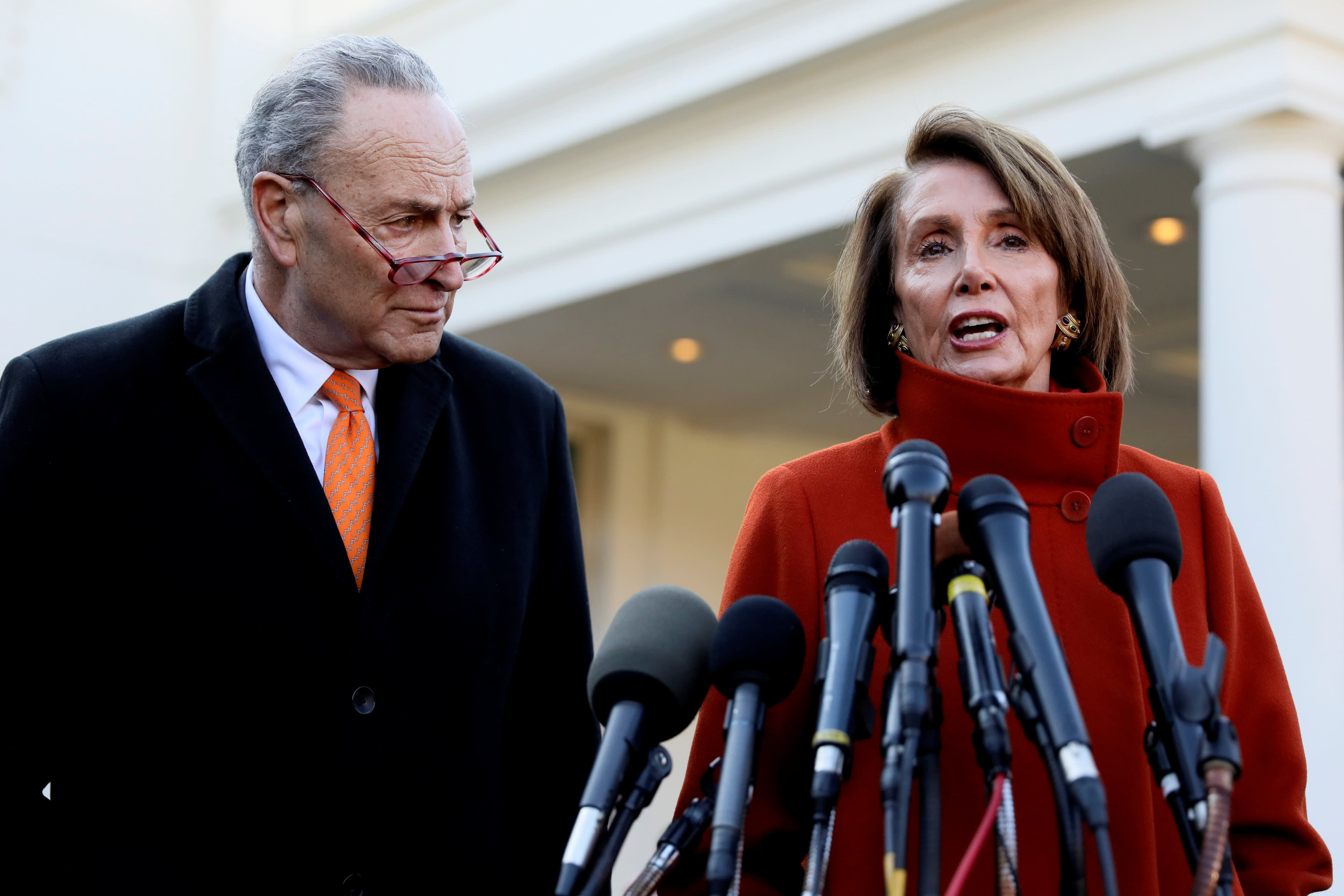
Senate Minority Leader Chuck Schumer (D-NY) and House Speaker designate Nancy Pelosi (D-CA) speak to reporters after meeting with U.S. President Donald Trump at the White House in Washington, U.S., December 11, 2018.
Jonathan Ernst | Reuters
Congress will soon vote on the United States' updated trade agreement with Mexico and Canada.
This much-needed update, called the United States-Mexico-Canada Agreement, is a sweeping trade deal that will create jobs, open up new markets for U.S. businesses of all sizes, and strengthen ties with two of America's most important allies.
House Speaker Nancy Pelosi and Senate Minority Leader Chuck Schumer are both smart legislators. They know the path to victory in 2020 runs through moderate districts. In the most recent midterm elections, my party flipped 40 House seats in Republican strongholds like Texas, Kansas, and Oklahoma by promising to advance policies that tangibly improve the lives of middle-class Americans.
USMCA is one such policy. Public support for the trade agreement has increased significantly since U.S., Canadian, and Mexican leaders finalized it last year. A new survey found Americans favor ratification of USMCA by a 4-to-1 margin.
The deal promotes a fair, rules-based trade environment that would help American workers flourish.
Consider how the pact would help farmers. USMCA eliminates some of the barriers that prevent American farmers from selling poultry, eggs, and dairy products in Canada. American farms already employ almost 3 million people. That number will grow if Congress ratifies the agreement and enables farmers to boost output and export more food to our northern neighbors.
House Speaker Nancy Pelosi and Senate Minority Leader Chuck Schumer are both smart legislators. They know the path to victory in 2020 runs through moderate districts.
Or consider how USMCA would boost wages for workers in the auto industry, which supports over 7 million U.S. jobs. To receive duty-free treatment under USMCA, 75 percent of a vehicle's value must originate in North America, up from the current 62.5-percent requirement under NAFTA. This change would create more jobs at auto-parts suppliers.
USMCA also requires nearly half of all car parts to be made by workers earning at least $16 an hour. That provision would ensure American manufacturing workers earn strong wages.
This deal has the strongest labor provisions of any U.S. trade agreement in history. It requires all three countries to protect labor rights recognized by the International Labor Organization. It also makes it easier for Mexican workers to form unions and collectively bargain. That'll help American workers by raising wages and benefits in Mexico -- thereby making it less attractive for U.S. companies to shift production and operations to our southern neighbor.
And USMCA would make it easier for America's 30 million small businesses to access the Canadian and Mexican markets. The deal reduces the regulatory and tax burden on certain American exports. For small e-commerce firms in particular, this could have a transformative effect on their business.
USMCA includes strong intellectual property protections that benefit workers in creative industries. For instance, the deal affords 70 years of copyright protection to books, movies, and music, which enables authors, actors, and artists -- and all the people they employ -- to reap the financial rewards of their original works.
And it prohibits customs duties on digital products like software. The deal also strengthens Canadian and Mexican intellectual property protections for advanced medicines invented in the United States, helping to level the playing field for U.S. innovators.
USMCA is a win for workers across North America. By building on the success of NAFTA, it will support the growth of current and future U.S. industries. Ratifying the pact would show voters across the country that Democrats prioritize the needs of hardworking Americans. That's a message that will resonate come 2020.
Howard Dean is the former Chair of the Democratic National Committee and Governor of Vermont.
For more insight from CNBC contributors, follow @CNBCopinion on Twitter.
Read More
Post a Comment